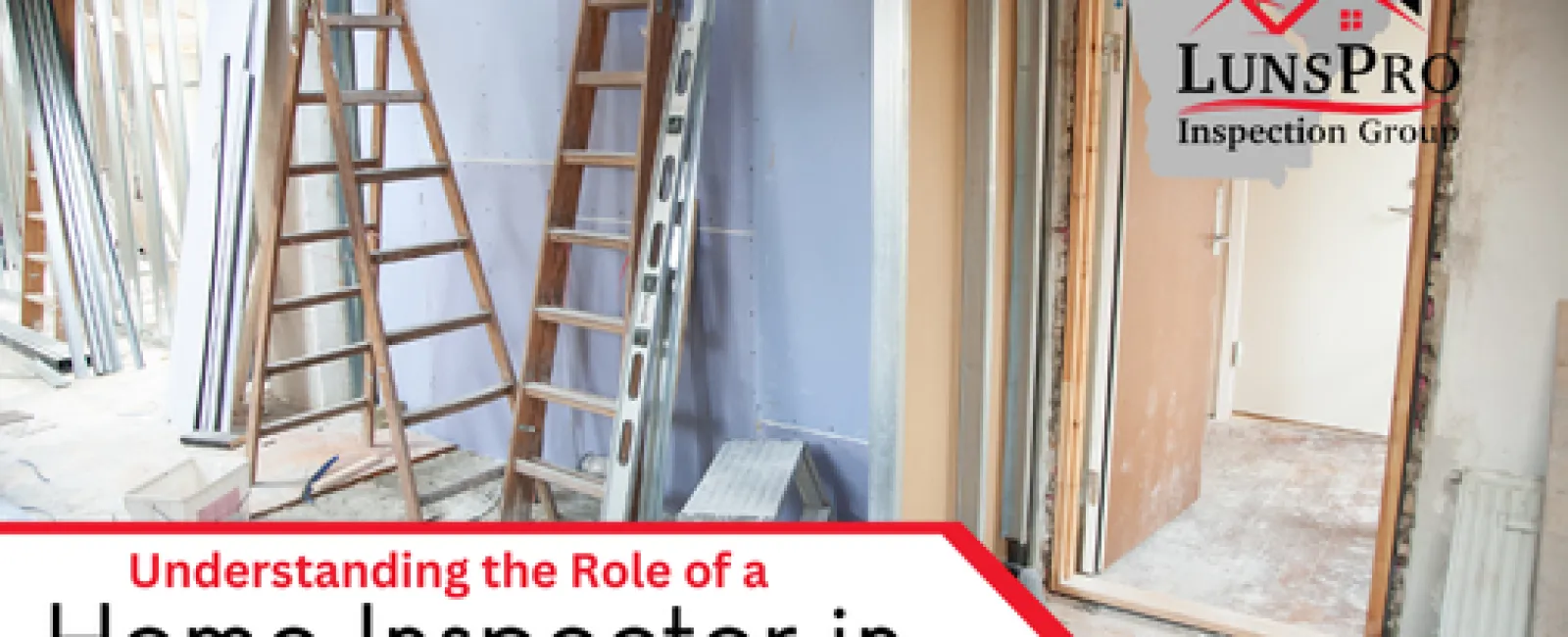Renovating a home is an exciting journey filled with possibilities of creating your dream space or improving the value of your property. However, beneath the surface of creativity lies a web of potential pitfalls, hidden issues, and structural complexities. This is where home inspections—a critical yet often overlooked step in the renovation process—become indispensable. Whether you're planning a minor update or a complete overhaul, enlisting the services of a professional home inspector can save you from costly surprises.
For homeowners and investors in the Carolinas, ensuring the success of renovation projects means working with trusted professionals like LunsPro Inspection Group, a leading provider of Carolina residential and commercial inspections. By understanding the role of a home inspector in renovation projects, you can make informed decisions that safeguard your investment, prioritize safety, and streamline your renovation process.
In this article, we'll delve deep into how home inspections tie into renovation projects, highlight the expertise of groups like LunsPro, and explore why inspections are critical before, during, and after your renovations.
What is a Home Inspection, and Why is it Crucial for Renovations?
A home inspection is a comprehensive examination of a property's physical structure and systems. Professional home inspectors assess everything from the foundation and roofing to plumbing, electrical, and HVAC systems. During renovation projects, these inspections help uncover underlying problems that might not be visible to the untrained eye, such as mold, faulty wiring, or structural instability.
Key Benefits of Home Inspections for Renovations:
- Identifying Structural Concerns: Renovations often involve significant changes that could affect the structural integrity of your property. Inspectors evaluate key areas to ensure the home can support the planned upgrades.
- Cost Savings: Discovering issues like water damage or outdated wiring early can prevent expensive repairs or rework during construction.
- Compliance with Local Codes: Renovations must adhere to building codes. Inspectors can pinpoint areas that may not meet current standards, helping you avoid legal or safety issues.
- Protecting Your Investment: A thorough inspection helps you plan renovations wisely, ensuring your efforts enhance the property's value.
The Role of LunsPro Inspection Group in Renovation Projects
When it comes to Carolina residential and commercial inspections, LunsPro Inspection Group stands out for its dedication to thorough, reliable, and customer-focused services. With years of experience in the Carolinas, LunsPro has earned a reputation as a trusted ally in homeownership, offering insights that empower homeowners to make informed renovation decisions.
When Should a Home Inspector Be Involved in a Renovation Project?
Timing is critical when incorporating home inspections into your renovation project. Ideally, inspections should occur at three key stages:
1. Before the Renovation Begins
Before demolition or construction starts, a pre-renovation home inspection helps determine the property's condition. This stage is vital for:
- Identifying pre-existing issues like cracks in the foundation, pest infestations, or outdated systems.
- Ensuring the home's structure can accommodate your renovation plans.
- Providing a baseline to measure the success of the renovations.
For example, if your renovation includes adding a second story, an inspection will determine whether the foundation and load-bearing walls can handle the additional weight.
2. During the Renovation
Mid-renovation inspections are beneficial for large projects involving multiple phases. They help ensure the work is proceeding as planned and adhering to local building codes. Common checks during this phase include:
- Verifying that framing, electrical, and plumbing work are up to standard before walls are sealed.
- Ensuring any necessary permits are secured and followed.
3. After the Renovation is Complete
Post-renovation inspections provide peace of mind by confirming that the completed work is safe, functional, and compliant with local regulations. Key aspects reviewed during this stage include:
- Ensuring new electrical or plumbing installations meet safety codes.
- Inspecting added structures, such as decks or extensions, for stability.
- Verifying that potential problem areas identified during pre-renovation inspections were addressed.
Common Renovation Challenges Addressed by Home Inspections
Home renovations often reveal unexpected challenges. A skilled home inspector plays a critical role in identifying and mitigating these issues. Below are some common renovation-related challenges and how inspections address them:
1. Hidden Structural Damage
Issues like water damage, termites, or compromised foundations may not be visible until walls are opened. Inspectors use tools like moisture meters and infrared cameras to detect these problems early.
2. Aging Systems
Older homes often have outdated electrical panels, inefficient HVAC systems, or aging plumbing. Inspectors assess these systems and recommend upgrades to ensure they meet modern standards.
3. Asbestos and Lead
Homes built before the 1980s may contain hazardous materials like asbestos or lead paint. Inspectors can identify these risks, allowing for proper removal during renovations.
4. Improper DIY Renovations
Previous homeowners may have made unpermitted DIY modifications that don't meet code. Inspectors evaluate these areas and suggest corrective actions.
5. Foundation and Roofing Issues
The foundation and roof are critical to a home's structural integrity. Inspections ensure these areas are sound before major renovations begin.
DIY vs. Professional Inspections
Some homeowners attempt to evaluate their property themselves, but DIY inspections rarely match the thoroughness of professional assessments. LunsPro Inspection Group utilizes specialized equipment, in-depth training, and years of experience to provide insights that go far beyond surface-level observations.
Advantages of Professional Inspections Over DIY Assessments:
- Comprehensive Expertise: Professionals are trained to recognize subtle signs of damage or wear.
- Advanced Tools: Thermal imaging, moisture meters, and other tools provide data that DIYers can't replicate.
- Objective Reporting: Professional inspectors provide unbiased, detailed reports to guide renovation planning.
How Home Inspections Enhance Renovation ROI
Investing in a home inspection isn't just about preventing problems—it's also about maximizing your return on investment (ROI). Renovations can significantly boost a property's value, but only if the work is done correctly and addresses underlying issues.
Ways Inspections Protect Your ROI:
- Avoiding Rework: Identifying and fixing problems early prevents costly delays or do-overs.
- Ensuring Quality: Inspections verify that contractors deliver high-quality work.
- Boosting Resale Value: Homes with documented inspections and repairs are more appealing to buyers.
For Carolina homeowners, working with LunsPro Inspection Group ensures your renovations align with your investment goals.
Embarking on a renovation project is a thrilling yet complex endeavor. From upgrading your kitchen to building an extension, ensuring the process goes smoothly requires a solid foundation of knowledge and preparation. This is where the expertise of a professional home inspection becomes invaluable.
Partnering with industry leaders like LunsPro Inspection Group, who specialize in Carolina residential and commercial inspections, can transform your renovation project from a risky gamble to a strategic investment. Our thorough assessments safeguard your property, streamline the renovation process, and protect your financial interests.
By involving a home inspector at every stage of your renovation journey—before, during, and after construction—you gain peace of mind knowing that your efforts are backed by expert insight. Whether addressing hidden challenges, ensuring code compliance, or enhancing the value of your home, inspections are the cornerstone of successful renovations.

